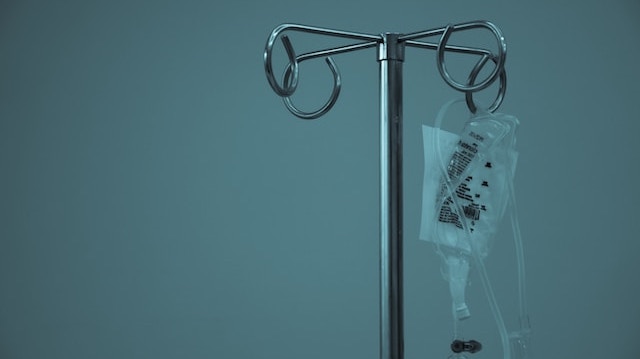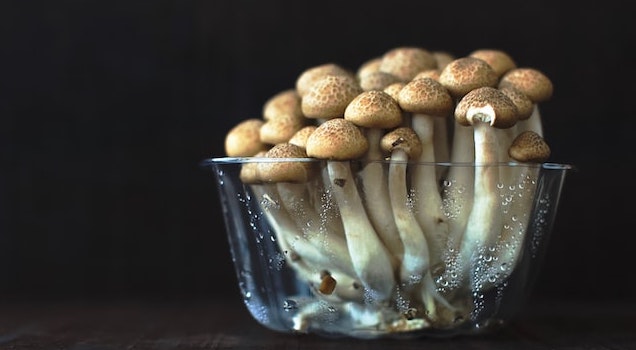Chief among these individuals are our healthcare workers: understaffed and underpaid for the Herculean task of managing a pandemic. Many of whom barely have any time left to spend with their own families at home. The bitter truth? Nurses, doctors, and hospital aides are worn out and exhausted by double shifts at work. The predominant feeling is that of depression and anxiety—pushing many healthcare workers to resign from their posts en masse. A new question arises: Who is left to care for the carers?
Healthcare Workers in Crisis
A recent survey of more than 700 healthcare workers in America, including first responders, showed that most of them fall under the category of clinical depression and anxiety. Several of these essential workers also qualify for clinical PTSD due to the endless toll of COVID cases. The results are not yet final, either; the survey will remain active until the pandemic has been resolved (if possible). One factor coming out from the data is alarming, indeed: the rise in healthcare workers who have had thoughts of self-harm or suicide since COVID first hit. One in four healthcare workers answered that life is “no longer worth living.”

If being surrounded by crates of pharmaceuticals has failed to prevent depression and anxiety, then perhaps it’s time for a more radical approach. One Washington cancer specialist is pushing for the freshest solution yet to the crisis: psilocybin, the psychedelic compound in magic mushrooms and truffles.
Psilocybin Can Treat Workers’ Burnout and Depression
Dr. Anthony Back, an oncologist at the University of Washington, believes that psilocybin may help solve the worsening mental health crisis. To prove his claim, Back started a research effort via the UW School of Medicine, where he gave psilocybin to healthcare workers stressed out by the pandemic. The process was paired with talk therapy sessions given by licensed therapists.The endgame, you may ask? For the magic mushroom compound to ease the symptoms of severe burnout and depression.

Back said that psilocybin’s benefits are manifold. For starters, it’s a chance to reset negative thought patterns in the brain, as he explained to KUOW.org:
“Psilocybin disrupts all the kind of ruminative over-and-over-and-over thoughts that you’re having, which for a doctor or nurse might be, you know, ‘Nothing I do ever works; I’m not doing anybody any good; I should just quit.”
Psilocybin Helps in Processing Trauma and Grief
Back also declared psilocybin as key to processing the stacked-upon trauma and grief of COVID. This is especially true for doctors, nurses, and first responders who’ve had to deal with the situation for more than two years now. Though it’s admirable that healthcare workers have sacrificed so much time to care for patients, it’s not enough to clap for them as recognition of their hard work.
Healthcare workers are not mindless robots who feel no pain; they are human beings with emotions, too. And just like everyone else, these emotions come with a certain breaking point. Beck said that the pandemic has not given these modern-day heroes a chance to step back, breathe, and acknowledge their own trauma over the past two years. The patients have always come first.
“To get through the day, a lot of doctors and nurses have had to just kind of ‘turn themselves off’. And it turns out, when you do that…you start to feel numb and then you can’t stop feeling numb. You feel like a zombie. In the long term, it can mean that you are just really disconnected from everything.”
An overwhelming sense of numbness, paired with random jolts of panic, is a documented symptom of post-traumatic stress disorder (PTSD). According to Back, psilocybin is the best alternative option to ease the signs of PTSD and grief:
“Psilocybin releases that kind of top-down control that your brain can have on your emotions. It allows you to just feel those feelings…and then you realise that you can feel all of them and it actually won’t destroy you.”
Psilocybin to Help Cope With Cancer
As an oncologist, an important part of Beck’s job is to help ease his patients’ depression and anxiety after diagnosing them with cancer. Today, psilocybin is one of many hallucinogenic substances being researched as a tool to overcome end-of-life anxiety. This phenomenon inspired Beck to launch his new study which is still ongoing.
So! How does this psilocybin treatment work exactly?
The first part asks the participants to join a few sessions of talk therapy as preparation. These sessions may delve into their past and present experiences of trauma and grief, while telling them what to expect after taking psilocybin. The second step is taking a full dose of psilocybin in a clinically-prepared set and setting. This means having two licensed therapists to guide them through the psychedelic experience for at least four hours. Finally, the third step entails a couple more talk therapy sessions to break down what the participants saw and felt while on psilocybin. Did they uncover new insights? Were they pointed towards the root of the problem?
Because this current study is still ongoing, they cannot divulge its results as of yet. Still, Back is confident that the data will be in psilocybin’s favour. His previous study on psilocybin included Kerry Pappas, a retired nurse practitioner and one of Back’s cancer patients. The former healthcare worker was diagnosed with lung cancer in 2013. The event froze Pappas to the point of stopping her from making any future plans in life.
Facing the Fear of Death With Psilocybin
What if the cancer came back? The thought of her life coming to an end at any minute kept Pappas awake most nights. As her family moved to a new home in Seattle, she stayed back in Mukilteo due to her fear of death. So, in a bid to reclaim her love for life, Pappas decided to enrol in a psilocybin study that aimed to treat death anxiety. It was now or never:
“It kind of started taking over my life. I couldn’t move forward.”
Higher doses of psilocybin may trigger sensory overload to the point of having dreamlike visions. Pappas had one such experience during her treatment. In her psychedelic trance, she saw old-timey lumberjacks chopping up massive tree trunks using pickaxes:

“And then, all of a sudden, out of the rocks came a jewel, and it represented myself. And in the meantime, I’m getting a loud booming ‘voice’, I’ll call it. It was saying, ‘Right here, right now’, over and over and over again.”
The experience woke Pappas up. Enough for her to stay present and not worry anymore about dying. After the psilocybin study, the former nurse practitioner gained the courage to move cross-country with her family. She found a new reason to keep on living, even when the cancer diagnosis returned.
The Next Big Thing in Mental Healthcare
Psilocybin, along with other natural psychedelics, is being touted as the next big thing in the mental healthcare space. Experts believe it could very well replace mainstream antidepressants, and even treat symptoms of PTSD and substance abuse. Back hopes that the healthcare workers in his present study will gain valuable insights, similar to what Pappas went through.
There’s still a long way to go, however, for the majority of scientists to fully embrace psychedelic-based therapy. According to Simon Goldberg, a psychology professor at the University of Wisconsin in Madison, the research on psilocybin is promising — but still in its early stages. More studies will have to be done to legitimise psilocybin for widespread use. But without FDA approval, it may prove to be challenging:
“We wouldn’t take seriously any intervention that had been tested on 300 people. There’s a lot of excitement around this right now, and I think it’s really important for us to collectively be taking it slowly.”
So far, Oregon is the only state to both decriminalise and legalise psilocybin for use in therapy.
Psilocybin’s Role in Moving On From COVID
In an interview with Insider, Back shared how the start of the pandemic had caused doctors, nurses, and other healthcare workers to burn out immediately—thanks to the flood of new cases:
“Everyone just gasped like, ‘Oh my god, this is gonna hit everybody.’ I think there was a lot of fear in those days, especially when there wasn’t enough PPE.”
According to Back, more doctors and nurses are resorting to hard drugs or alcohol as a way of coping with the stress and trauma of COVID. This is why he hopes psilocybin will serve as a safer, healthier option for stress relief.
“What psilocybin can do is it disrupts that cycle of thinking long enough for someone to have some relief from it, and usually some insights about what is going on.”
A Newfound Sense of Optimism
Seeing as Back’s psilocybin study with healthcare workers is still ongoing, it will take some time before the results are published in a journal. The evidence is clear, however. Psilocybin has been shown to relieve symptoms of resistant depression in a similar way as (or even better than) mainstream drugs. And thanks to the eye-opening nature of psychedelic dream states and ego death, patients with terminal cancer can reduce their feelings of anxiety, sadness, or existential despair.
Indeed, psilocybin offers the chance to feel more connected with others and to the world at large. And whether you take it via shrooms or magic truffles, psilocybin can help you create a brand-new sense of optimism to keep on living!





